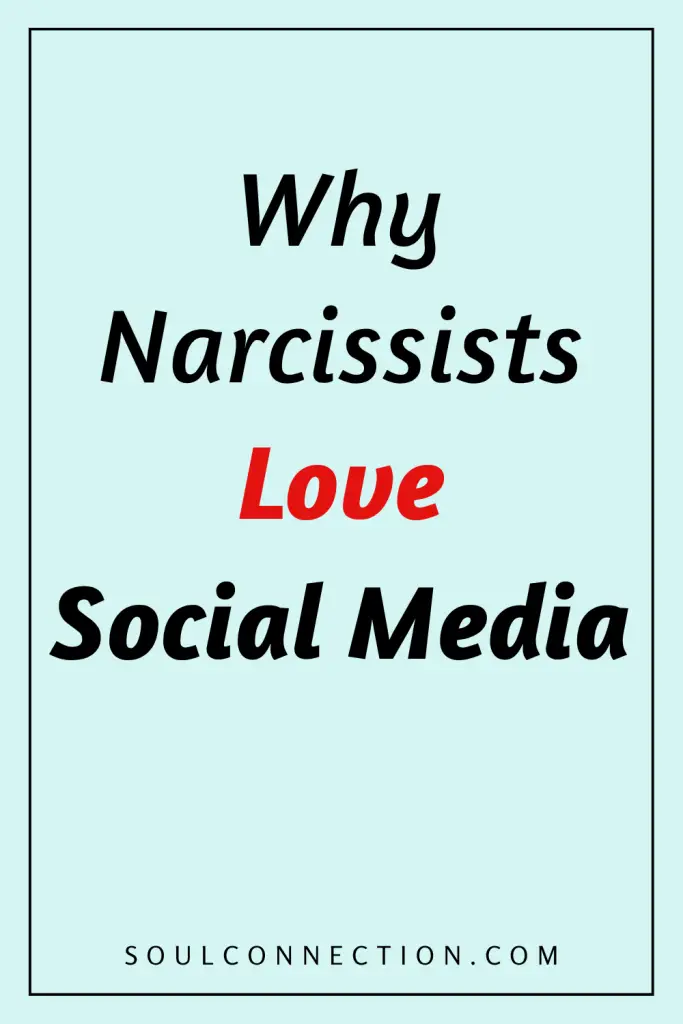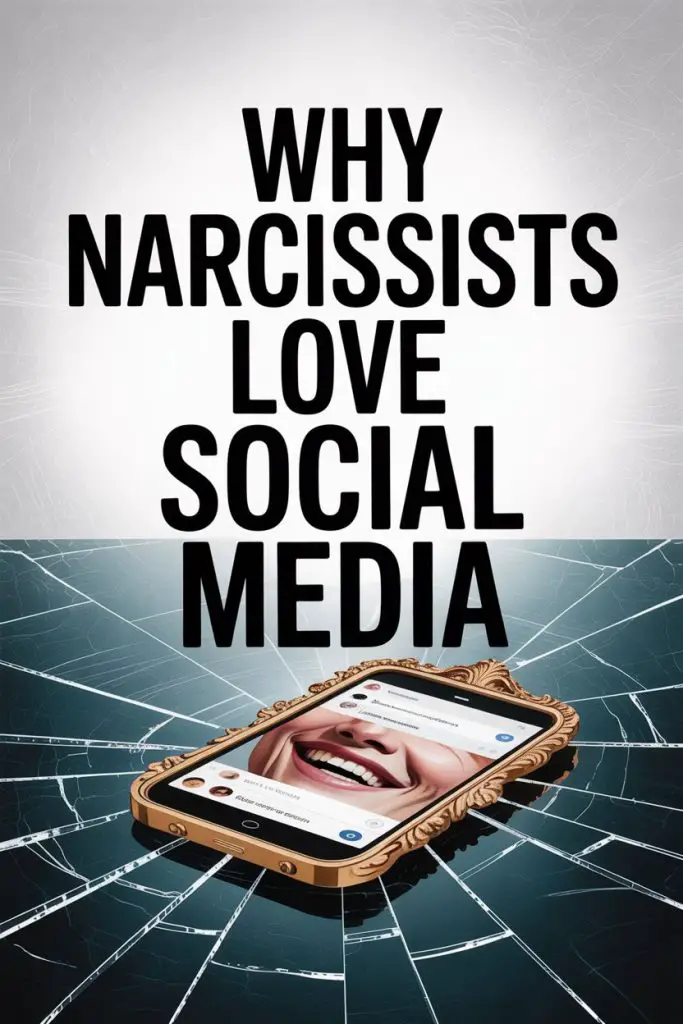Scroll through your favorite app, and it can seem as though half the population has suddenly become obsessed with sharing gym selfies, inspirational quotes, and yet another photo of their avocado toast.
Social media has turned everyday life into a stage, and narcissists have nabbed front row seats—and the microphone.
Ever wonder why certain personalities seem drawn to posting, boasting, and basking in the online spotlight? Welcome to the parade ground where narcissists march proudly, hashtags flying.
The Perfect Audience Awaits
Social media delivers something most people crave: attention. For narcissists, it’s a banquet.
Imagine having an audience available 24/7, ready to dole out hearts and thumbs-up every time you strike a pose or share a “hilarious” anecdote about how the barista spelled your name wrong (again).
Those with narcissistic tendencies aren’t just fishing for compliments—they’re running a commercial for themselves, and the product is always “Best Version of Me.”
Social platforms provide validation without the pesky need for actual intimacy or vulnerability. That’s one way to get affirmation on tap, no emotional investment required.
Curation Is the Name of the Game
Social media profiles can be curated more carefully than a royal wedding guest list. For narcissists, this is pure joy.
The ability to cherry-pick flattering photos, filter out “unworthy” moments, and edit captions until they sparkle means every post can be crafted for maximum impact.
Real life is unpredictable. Online life? It’s edited, staged, and filtered until it gleams. The narcissist’s art gallery hangs in the palm of their hand, ready for admiration.
Feedback Loops and Instant Gratification
Who needs to wait for a compliment IRL when you can get a dozen within minutes? Social media platforms are designed to keep users coming back, so the feedback loop is tight.
For narcissists, that “ping” or “ding” is like a bell for Pavlov’s dog. One selfie, and suddenly there’s a dopamine rush from the wave of likes and affirming comments.
Craving approval? Online validation never runs out. It’s a self-esteem vending machine that accepts nothing but selfies as currency.
Everyone Gets to Be the Star
In the offline world, becoming the centre of attention is hard work. At a family dinner, someone else’s toddler or a tipsy uncle might steal your thunder.
On social media, narcissists don’t have to share the spotlight. Their newsfeed, their rules.
From dramatic story posts to holiday bragging rights, social platforms offer endless opportunities to shine. Each post feels like a mini press release—no PR agent required.
Control Over Image and Narrative
Here’s a secret: narcissists are obsessed with controlling how others see them. Social media gives them the power to control their storyline, manage their “brand,” and swiftly delete any less-than-flattering comments.
Had a meltdown at work? No one needs to know. With a quick photo of you “crushing it” at the gym, the narrative shifts. Social media is the ultimate spin machine.
The Illusion of Connection
Narcissists may not excel at genuine intimacy, but they’re masters of surface-level relationships. Social media offers the illusion of connection—a parade of friends, followers, and mutuals, all available with a double tap.
Who cares if you haven’t actually seen that former classmate in a decade? You’ve exchanged fire emojis, and that’s what counts. For narcissists, the quantity of connections often means more than the quality.
Drama, Bait, and the Attention Economy
A well-timed “vague post” or cryptic story can send followers into a frenzy.
Narcissists thrive on stirring the pot, whether it’s through not-so-subtle humblebrags or mysterious updates that beg for comments (“Some people need to mind their own business! You know who you are…”).
Social media is a breeding ground for this kind of attention-seeking. If someone bites, the narcissist’s day is made. Who needs soap operas? The drama is right there in the comments.
FOMO and Competitive Posting
Social platforms can quickly turn life into a competition. Who’s traveling to Bali? Who just got engaged? Who’s “living their best life” this week?
Narcissists are quick to turn these moments into mile markers, eager to post about their own victories (real or exaggerated) to keep up—or outdo—the digital Joneses.
Sometimes, this competitive streak gets out of hand. Ever notice someone’s vacation post reads more like a marketing campaign than a travel diary?
That’s the narcissist’s need to prove they’re winning—no matter how high the stakes.
Echo Chambers and Fan Clubs
Narcissists love to surround themselves with affirming voices. Social media algorithms are only too happy to oblige, serving up content that matches their worldview and silencing dissent with the swift unfollow or block.
What results is a feedback loop of adoration. When followers become a cheer squad (or, at least, not a peanut gallery), the narcissist’s ego swells.
Anyone who dares to criticize? Gone with a click.
Ghosting and the Discard Phase
Ever been baffled when someone you once interacted with daily suddenly acts like you never existed? Welcome to the digital version of the narcissist’s discard phase.
Social media makes ghosting easy—and often, there’s a new audience or supply already lined up.
This isn’t just a quirk; it’s a pattern. Narcissists move on fast, replacing old “friends” with fresh faces, chasing the next round of admiration.
The cycle continues, all thanks to the endless buffet of new connections just a swipe away.
Social Media and Relationships
You might be wondering, “What does all this mean for my relationship?” If your partner seems glued to their follower count, or you’re feeling like a prop in their never-ending highlight reel, it’s time to pay attention.
Communication is your best tool. Address how certain behaviors make you feel—not in a confrontational way, but with openness and honesty.
Try: “When our moments together are shared online before we’ve enjoyed them, I feel less connected.” Keep the conversation focused on your needs, not their flaws.
If social media becomes a battleground for attention or validation, consider setting boundaries together. Maybe it’s a phone-free dinner, or an agreement to keep certain memories private. True intimacy doesn’t need an audience.
Spotting the Patterns
Not every social butterfly is a narcissist, and not every selfie is a cry for validation. The difference is in the patterns.
A few signs to watch for: chronic bragging, lack of empathy, obsession with follower count, or repeatedly making others feel like bit players in their show.
If you recognize these signs in your significant other—or yourself—don’t panic. Self-awareness is the first step toward healthier habits.
It’s possible to enjoy social media without letting it become the third wheel in your relationship.
Can a Narcissist Change Their Social Media Ways?
People don’t transform overnight, but growth is possible. If you suspect your partner has narcissistic tendencies, and it’s affecting your connection, encourage open dialogue.
Gently point out how their online habits make you feel. Ask for a little more presence, a little less performance.
Progress may be slow, but even small changes—like prioritizing real-life moments over online applause—can make a world of difference.
Sometimes, a digital detox, or even a reassessment of why they post, can be insightful.
Finding Connection Beyond the Screen
Social media isn’t all bad. Used mindfully, it can enhance real-world relationships, bridge distance, and share joy. The trick lies in balance.
Use platforms to connect, not compete. Cherish private moments as much as shared ones.
If you find your relationship getting hijacked by the Instagram highlight reel, step back and remember what matters most. Likes are fleeting, but real moments linger.
More Than Just a Selfie
While social media may be the narcissist’s playground, it’s also where millions of stories—authentic, messy, and real—are told every day.
If you’re wrestling with a partner’s need for online attention, or just noticing the subtle pressures it puts on your own sense of worth, take heart.
You’re allowed to set boundaries. You’re allowed to crave privacy. And you deserve a relationship that feels richer offline than it looks online.
If that means fewer selfies and more actual smiles, well, that’s a story worth sharing.


